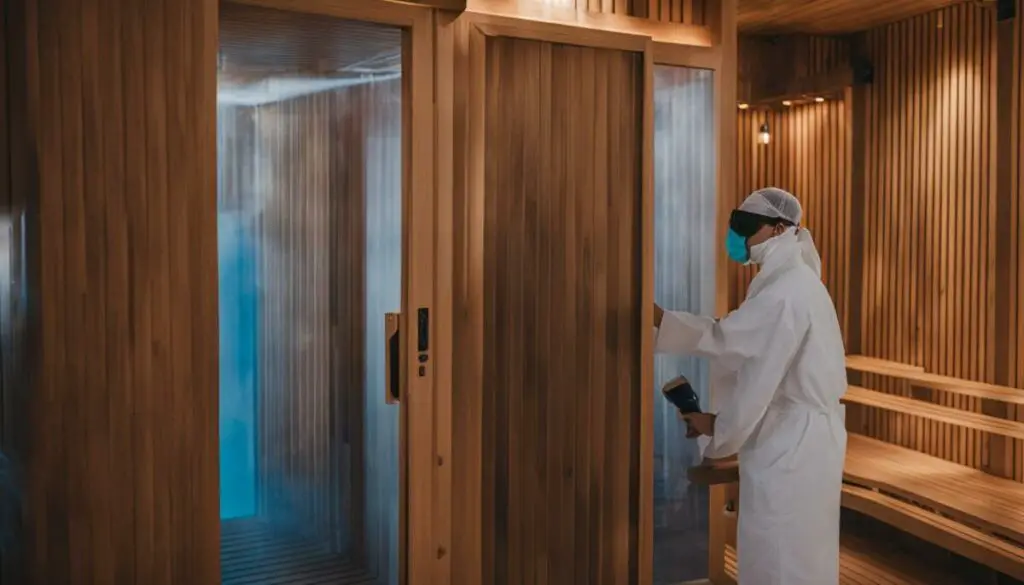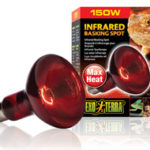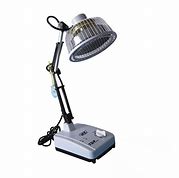Last Updated on 6 months by Francis
Infrared saunas are becoming increasingly popular for their potential health benefits, from reducing inflammation to aiding in detoxification. However, it is essential to understand that infrared saunas may not be suitable for everyone. It is crucial to take the necessary precautions and avoid any potential health risks associated with their use.
In this section, we will explore some important precautions and contraindications of using an infrared sauna. We will discuss who should avoid using this type of sauna and the potential health risks associated with it. Knowing these precautions will help you make an informed decision about the use of infrared saunas and minimize your exposure to any potential danger.
Contents
Key Takeaways:
- Not everyone is a good candidate for using an infrared sauna
- Precautions and contraindications should be considered before using an infrared sauna
- Understanding potential health risks is crucial before exposing yourself to infrared sauna sessions
- Individuals with certain medical conditions or sensitivities should avoid using an infrared sauna
Medical Conditions Incompatible with Infrared Sauna Use

If you have certain medical conditions, you may be at high risk when using an infrared sauna. In order to ensure a safe experience, it is important to be aware of any medical conditions that may be incompatible with infrared sauna use.
High Blood Pressure
Individuals with high blood pressure should consult with their doctor before using an infrared sauna. The heat can cause blood vessels to dilate and may result in a sudden drop in blood pressure, which can be dangerous for individuals with already elevated blood pressure.
Heart Disease
If you have heart disease or a history of heart attacks, you may be at risk when using an infrared sauna. The heat can put additional strain on the heart and exacerbate symptoms of heart disease.
Multiple Sclerosis
Individuals with multiple sclerosis should consult with their doctor as the heat from an infrared sauna can exacerbate symptoms. The heat can cause inflammation and damage to the nervous system, leading to increased symptoms and discomfort.
Hemophilia
Individuals with hemophilia should avoid using an infrared sauna as the heat can cause blood vessels to dilate and increase the risk of bleeding.
Skin Conditions
If you have a skin condition such as eczema or psoriasis, you may experience increased symptoms after using an infrared sauna. The heat can cause inflammation and irritation to the skin, exacerbating symptoms of these conditions.
“Always be sure to consult with your doctor before using an infrared sauna if you have any pre-existing medical conditions.”
Precautions for Individuals with Cardiovascular Conditions

If you have a history of heart disease, high blood pressure, or any other cardiovascular condition, it is crucial to speak with your doctor before using an infrared sauna. While sauna sessions can provide many health benefits, they can also put a strain on the cardiovascular system, which can be dangerous for individuals with pre-existing conditions.
When using an infrared sauna, it’s important to start slowly and limit your time in the sauna. Begin with 5-10 minute sessions and gradually increase to no more than 20-30 minutes per session. Additionally, avoid using the sauna alone and have someone nearby in case you experience any symptoms.
Some of the potential risks associated with using an infrared sauna for individuals with cardiovascular conditions include:
| Risk | Description |
|---|---|
| Increased Heart Rate | The heat from the sauna can cause your heart rate to increase, putting strain on the cardiovascular system and potentially exacerbating pre-existing conditions. |
| Decreased Blood Pressure | The heat can cause blood vessels to dilate, which can lead to a drop in blood pressure. While this can be beneficial for some individuals, it can be dangerous for those with pre-existing low blood pressure. |
| Dehydration | The high heat of the sauna can cause excessive sweating, leading to dehydration. This can be particularly concerning for individuals with pre-existing cardiovascular conditions. |
If you experience any symptoms such as dizziness, chest pain, or shortness of breath while using an infrared sauna, stop immediately and seek medical attention.
Overall, individuals with cardiovascular conditions should take caution when considering using an infrared sauna. Speak with your doctor to determine if sauna sessions are safe for you and take appropriate precautions to ensure a safe and beneficial experience.
Precautions for Pregnant Women

If you are pregnant, it is essential to take precautions when using an infrared sauna. While the benefits of infrared saunas are well-documented, there are potential risks for pregnant women that must be considered.
Firstly, it is not recommended to use an infrared sauna during the first trimester of pregnancy. The first trimester is a crucial period of fetal development, and exposure to the high temperatures of an infrared sauna may pose a risk to the fetus.
During the second and third trimesters, it may be safe to use an infrared sauna in moderation, but it is essential to consult with your healthcare provider first. They can advise you on whether infrared sauna sessions are appropriate for you and suggest any necessary precautions.
It is also important to avoid prolonged sessions and high temperatures. Studies show that high body temperatures during pregnancy can increase the risk of birth defects and developmental abnormalities. Therefore, it is recommended that pregnant women limit their infrared sauna sessions to no more than 15 minutes at a time and keep the temperature below 150°F.
In summary, pregnant women should take extra precautions when considering using an infrared sauna. Avoid use during the first trimester, consult with your healthcare provider, limit sessions to 15 minutes or less, and keep the temperatures moderate. By following these guidelines, you can help ensure a safe and beneficial infrared sauna experience.
Precautions for Individuals with Skin Sensitivities

If you have skin sensitivities, it is essential to take precautions before using an infrared sauna. The high temperature and infrared light may cause irritation and dryness, leading to discomfort and potential injury. Follow these guidelines to protect your skin:
- Hydrate: Drink plenty of water before and after your sauna session to help keep your skin moisturized.
- Protect: Cover sensitive areas with a towel or cloth to prevent direct exposure to infrared light.
- Cleanse: Shower with lukewarm water after your sauna session to remove any sweat or toxins from your skin.
- Test: Try a short session in the infrared sauna to see how your skin responds before committing to a full session.
While infrared saunas can provide numerous benefits, individuals with skin sensitivities should take extra precautions to avoid potential dangers. By following these guidelines, you can ensure a safe and enjoyable sauna experience.
Precautions for Individuals with Respiratory Conditions

Individuals with respiratory conditions should take extra precautions when using an infrared sauna. Since infrared saunas heat the body directly, the air inside the sauna can become very dry, which may cause respiratory issues for some people. Individuals with respiratory conditions should consult with their healthcare provider before using an infrared sauna.
It’s important to keep the air inside the sauna moist to avoid respiratory complications. Using a humidifier or placing a bowl of water inside the sauna can help maintain proper moisture levels. It’s also important to limit the amount of time spent in the sauna and to exit immediately if any discomfort arises.
Contraindications of Infrared Sauna for Individuals with Respiratory Conditions
Individuals with the following respiratory conditions should avoid using an infrared sauna:
- Asthma
- Chronic bronchitis
- Emphysema
- Lung cancer
- Chronic obstructive pulmonary disease (COPD)
- Any other respiratory condition that causes difficulty breathing
If you have a respiratory condition and are unsure if using an infrared sauna is safe for you, consult with your healthcare provider before use.
“Individuals with respiratory conditions should take extra precautions when using an infrared sauna.”
By taking necessary precautions, individuals with respiratory conditions can safely enjoy the benefits of an infrared sauna. However, it’s important to consult with a healthcare provider and to pay close attention to any discomfort or difficulty breathing while inside the sauna. When used safely, infrared saunas can provide a variety of health benefits.
Precautions for Individuals with Low Blood Pressure

Individuals with low blood pressure should take certain precautions when considering the use of an infrared sauna. Saunas can cause a temporary drop in blood pressure, which may pose a risk for those with already low levels.
It is important for individuals with low blood pressure to consult with their healthcare provider before using an infrared sauna. The provider may be able to offer guidance and precautions specific to the individual’s medical history.
It is also recommended that individuals with low blood pressure avoid using an infrared sauna alone. Having a partner present can ensure that the individual does not experience any complications during the session.
| Precautions for Individuals with Low Blood Pressure | Contraindications of Infrared Sauna |
|---|---|
| – Consult with healthcare provider before use | – Severely low blood pressure |
| – Avoid using sauna alone | – Recent heart attack |
| – Drink plenty of water before and after use | – Severe aortic stenosis |
Individuals with uncontrolled low blood pressure or severe conditions should avoid using an infrared sauna altogether. It is important to prioritize safety and follow any recommended precautions.
Precautions for Individuals with Diabetes
If you have diabetes, it’s important to approach using an infrared sauna with caution. The high temperatures can cause fluctuations in blood sugar levels, which can be dangerous if not monitored closely.
Before using an infrared sauna, it’s essential to check your blood sugar levels and ensure they are stable. If your levels are too high or too low, it’s best to avoid using the sauna until they are under control.
It’s also recommended to avoid using the sauna alone, especially if you experience hypoglycemia (low blood sugar levels). Make sure someone is around in case you experience any adverse effects.
During your sauna session, it’s crucial to stay hydrated and monitor your blood sugar levels regularly. It’s also best to keep your sauna sessions short and not exceed 20 minutes at a time.
If you experience any dizziness, fatigue, or other unusual symptoms during your sauna session, exit the sauna immediately and check your blood sugar levels.
In summary, individuals with diabetes should take extra precautions when using an infrared sauna. Monitor your blood sugar levels regularly, stay hydrated, and avoid using the sauna when your levels are unstable.
Conclusion
Using an infrared sauna can offer numerous health benefits, but it is crucial to be aware of the potential risks and take necessary precautions. Throughout this article, we have explored the contraindications of infrared sauna use and cautionary measures to ensure a safe experience.
Key Takeaways
Individuals with certain medical conditions should avoid using an infrared sauna. These conditions include:
- Cardiovascular conditions
- Respiratory conditions
- Low blood pressure
- Diabetes
Pregnant women and individuals with skin sensitivities should also take precautions when considering infrared sauna use.
It is important to keep in mind that prolonged use of an infrared sauna can lead to dehydration, overheating, and other risks. It is recommended to limit sessions to 30 minutes and drink plenty of water before and after use.
Final Thoughts
While infrared saunas offer many benefits, it is crucial to use them safely and responsibly. Always consult with a healthcare provider before using an infrared sauna, especially if you have any pre-existing medical conditions.
By following the precautions and guidelines outlined in this article, you can ensure a safe and enjoyable infrared sauna experience.
FAQ
Who should not use an infrared sauna?
There are certain precautions and contraindications for using an infrared sauna. Individuals with certain medical conditions or health concerns should avoid using an infrared sauna. It is recommended to consult with a healthcare professional if you have any concerns or pre-existing conditions.
What are some medical conditions incompatible with infrared sauna use?
Some medical conditions that may be incompatible with using an infrared sauna include uncontrolled high blood pressure, heart disease, pacemakers, and certain skin conditions. It is essential to discuss your specific medical history with a healthcare professional before using an infrared sauna.
What precautions should individuals with cardiovascular conditions take?
Individuals with cardiovascular conditions should exercise caution when using an infrared sauna. It is recommended to start with shorter sessions at a lower temperature and monitor how your body responds. Stay hydrated and listen to your body’s signals. If you experience any discomfort or unusual symptoms, stop the session immediately.
Are infrared saunas safe for pregnant women?
It is generally recommended that pregnant women avoid using an infrared sauna. The increased body temperature and potential dehydration can pose risks to both the mother and the baby. It is best to consult with your healthcare provider for specific guidance during pregnancy.
What precautions should individuals with skin sensitivities take?
Individuals with skin sensitivities should take precautions when using an infrared sauna. It is advisable to start with shorter sessions at lower temperatures and monitor how your skin reacts. Avoid using any lotions, creams, or oils that may further irritate the skin. If you experience any discomfort or skin reactions, discontinue sauna use.
Are there any precautions for individuals with respiratory conditions?
Individuals with respiratory conditions should exercise caution when using an infrared sauna. The heat and humidity in the sauna may affect breathing and exacerbate respiratory symptoms. It is recommended to consult with a healthcare professional before using an infrared sauna to ensure it is safe and appropriate for your specific condition.
What precautions should individuals with low blood pressure take?
Individuals with low blood pressure should be cautious when using an infrared sauna. The heat can cause blood vessels to dilate, which may further decrease blood pressure. It is advisable to monitor how your body responds during a sauna session and to stay hydrated. If you feel lightheaded or dizzy, end the session and rest.
Are there any precautions for individuals with diabetes?
Individuals with diabetes should take precautions when using an infrared sauna. The heat can affect blood sugar levels, so it is important to monitor your glucose levels before, during, and after the sauna session. Consult with your healthcare provider for specific guidance on managing your blood sugar during sauna use.
What are the key precautions and contraindications of using an infrared sauna?
Throughout this article, we have discussed various precautions and contraindications for using an infrared sauna. It is important to be aware of any medical conditions, follow the guidance of healthcare professionals, start with shorter sessions at lower temperatures, stay hydrated, and listen to your body’s signals. Prioritize safety and always consult with a healthcare provider if you have any concerns.









